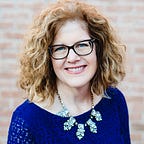Three Lessons from the Lifetime School of Trial and Error
If there was a Masters degree for the School of Trial and Error, I would have several. The lessons from my failures have taught me more than additional letters and degrees after my name.
Life is rarely a straight line. Sure, one strategy for success is to begin with the end in mind (thank you Stephen Covey.) It is a wise and proven step towards effective goal setting that I employ when I can. An effective writing exercise in this vein is to write your own obituary. Now that, is true planning for the end.
Similarly, Yogi Berra is quoted for the saying: “If you don’t know where you are going, you might wind up someplace else.” Yet I also ascribe to the old Jewish proverb: Man plans, God laughs.
- It’s ok to change directions. Few of us know the entire road we will travel. How dull if we did.
There are those of us who follow a star that keeps moving, a target that keeps changing, and desires that evolve and develop through time. Most of the time I know more of what I don’t want, than what I do. Sometimes, following an unexpected tangent has worked out providentially in a way I could not have foreseen.
Conversely, I have read lots of blogs from people whose Type-A personalities drive them to graduate college two years early, rank first in competitive sports, and found their first corporate start-up by age 22. Their daily routines include daily workouts at 5:00 am, regular goal-setting, twelve-hour work days and self-confidence in abundance. They write best-selling business books or novels in their spare time.
I admit to a touch of envy. I want that energy and success. Yet, part of growing older, is accepting who we are without comparing ourselves to those with a different background, makeup, and personality. Few college graduates are valedictorians — but they are still graduates who stayed the course and finished what they started. Another favorite saying: “What do they call the medical student who graduated last in their class?” Doctor.
2. Know your priorities, and make sure those priorities are the people in your life, not the employers in your life.
I have been reasonably successful without knowing calculus, going to medical school, or attaining an MBA. I likely would have made a lot more money through the years. But income by itself is not a full measure of success, especially if accompanied by unhappiness, dissatisfaction, or lack of purpose.
A few of the worst choices in my life have been when I chose a business meeting or event over my kids, to prove to my employer I was “serious” about my profession. Like many women, I eventually realized I could not do it all. I left the full-time workforce for several years to help raise my three children through middle school. This exit from the workforce cut my income and ended a career in software support. It was one of the best decisions of my life.
Years later, when I was older, wiser, and more driven, I went back to night school, got my paralegal certificate and re-entered the workforce. Today my kids are wonderful, caring adults on their own paths. We are closer, I think, because I chose the people in my life first.
3. Life does not come with an instruction manual. But we can become instructors.
For centuries, people developed skills and learned a trade by serving an apprenticeship under a skilled master. The better the master, sometimes the greater success and skill of the student. A great teacher offered encouragement and support.
But what if mentors and role models didn’t come into your life? I always hated the essays that required you to write about “the one person who had the biggest influence in your life.” I still can’t name a specific person, encourager or role model. But what have I learned? I can be that encourager, role model, and person who says “go for it” for my friends and family, that I did not have.
Like it or not, we are all enrolled in the Lifetime School of Trial and Error. It is the foundation of resilience, the essence of who we become, and the basis of wisdom. When I eventually graduate from this lifetime, my diploma will not be a piece of paper to hang on the wall. Rather it will be a long obituary of lessons learned, goals achieved, a life well-lived, and the people I chose to make important in my life.
The School of Trial and Error? It’s how I became who I am today. I still don’t know the full direction of the road ahead of me. But I know who I am traveling with, and I’m taking notes for that best-selling instruction manual I plan to write.
